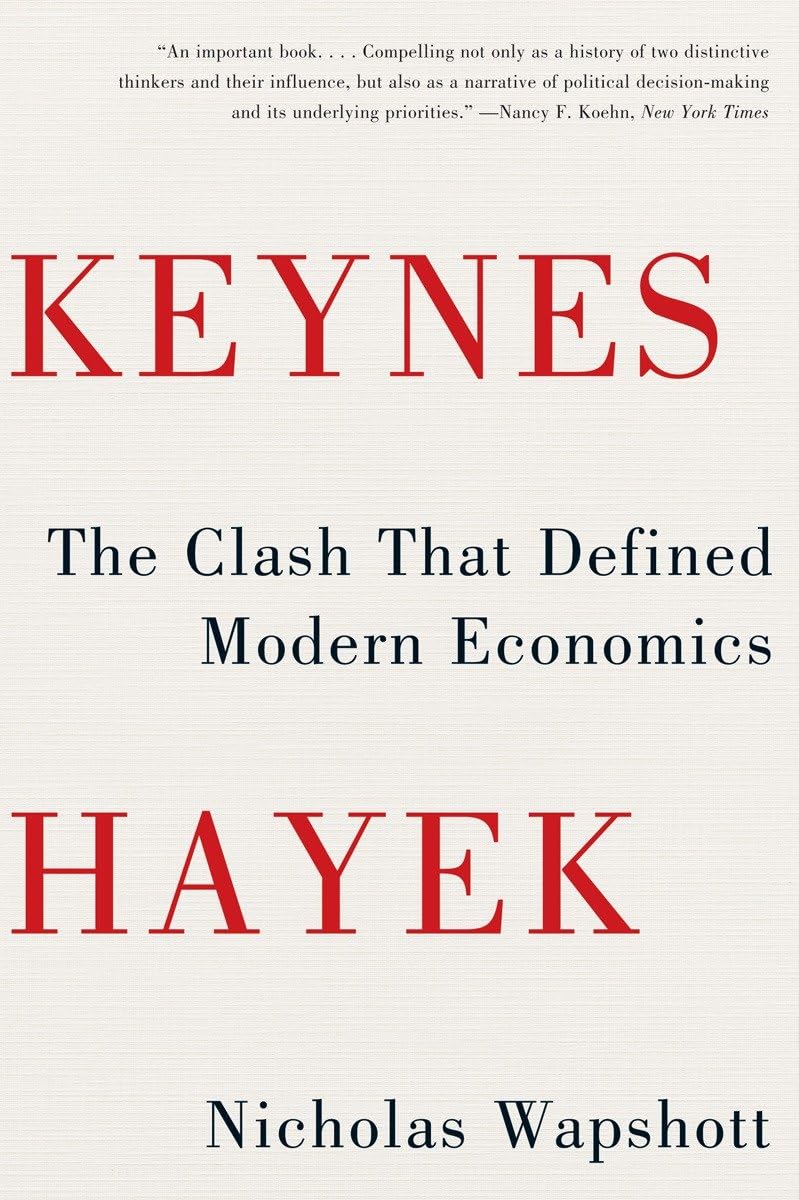

Keynes Hayek: The Clash that Defined Modern Economics
C**N
Libro interessante
Ottimo
G**O
Emocionante, Un deleite al lector
El Libro es muy bueno, narra una historia interesante que más personas deberían de conocer sobre 2 de los personajes más importantes de la historia de la economía , sus continuos debates y desacuerdos pero mas importante, sobre todo sus motivaciones. Excelente compra.
S**R
Four Stars
I feel language is difficult for someone who is from another stream or subject
A**N
Engaging account of the intellectual battle of Keynes and Hayek reminding us that history rhymes
Keynes Hayek is the account of the relationship and evolving debate between Keynes and Hayek. It is an engaging account of the personalities involved and the rivalries that grew. It gives a perspective on the historical relationships of the economists of various schools of thought as well as an account of how each of the economists ideas evolved over time to come to their final form. It is engaging and informative from a variety of viewpoints and the substance of their disagreements continues to be a source of tension today as we face similar dilemmas in today's world. This is well timed to remind us that history often rhymes and the issues we face have similarities with the past.The author discusses events chronologically starting with Keynes's role and disgust at the Treaty of Versailles and his work The Economic Consequences of the Peace. Given Hayek lived in Austria that was literally starving after the War, the overlap between the two is shown to have started very early. An account of the devolopements of each character is detailed as are the intellectual currents that drove their work. The major debate really starts with the publication of Treatise on Money in which Keynes begins to formulate his ideas about disequilibrium and the stickiness of prices on self adjustment of economic systems. He starts to consider market aggregates as variables to study. Hayek, being an economist focused on capital formation starts a vigorous debate about the assumptions made by Keynes and a very technical argument ensues. The two were looking at economics very differently, Keynes from a top down approach and Hayek from a bottom up. Keynes believed market failures of demand could be plugged by government expenditure whereas Hayek believed that economics could only be understood from knowledge at the microeconomic level and top down allocation would be wasteful and crowd out private investment. There differences became formalized in their respective epic works, The General Theory of Employment, Interest and Money and Hayek in Road to Serfdom.After introducing the ideas of each author and their contentions with one another the book continues on the journey of real events and how the respective economists influenced policy. Keynes is shown to have been the most influential until the world was hit by the stagflation that contradicted the understanding of the relationship of unemployment and inflation previously understood via the Phillips curve. Hayek is shown to have resurfaced in influence via UK Margaret Thatcher and Reagan (though Hayek did not believe either really followed through nearly enough, with Reagan not at all).The historical account laid out by the author lays the groundwork for an unfamiliar reader to get a grasp of the ideas, arguments and philosophies of the two economists. The reader already familiar with the ideas of Keynes and Hayek will get a lot out of the history as it is written very colorfully. As for the economics side, the author does a good job describing the basic differences between the two approaches and the reader gets a sense of both the benefits and limitations of both economist approaches. The discussion is not comprehensive nor should it be as such a discussion can fill volumes. All in all one gets a lot of interesting material from a historical account as well as a good overview of the intellectual differences from an economic account. Very worthwhile read.
S**T
Catchy narrative history of modern economics
This book has lots to recommend itself to the general reader with an interest in modern history, politics and economics. The author does a wonderful job of explaining how the Keynes and Hayeks views on how an economy works/should work differed and gives a brief summary of their earlier lives that suggests how, to some extent these views were conditioned by their experience of things like war and economic depression earlier in their lives. I found it really informative of how (in Europe and the USA anyway) the political left and right have been divided, post-WWII along Keynesian and Hayekian economic lines.There's also a lovely treatment of their clashes in economic and academic publications - it's really well written so that you get a sense of the passion and emotion behind their letters and publications even though they're couched in very academic and measured terms. Can't recommend this book highly enough.
Trustpilot
1 month ago
4 days ago